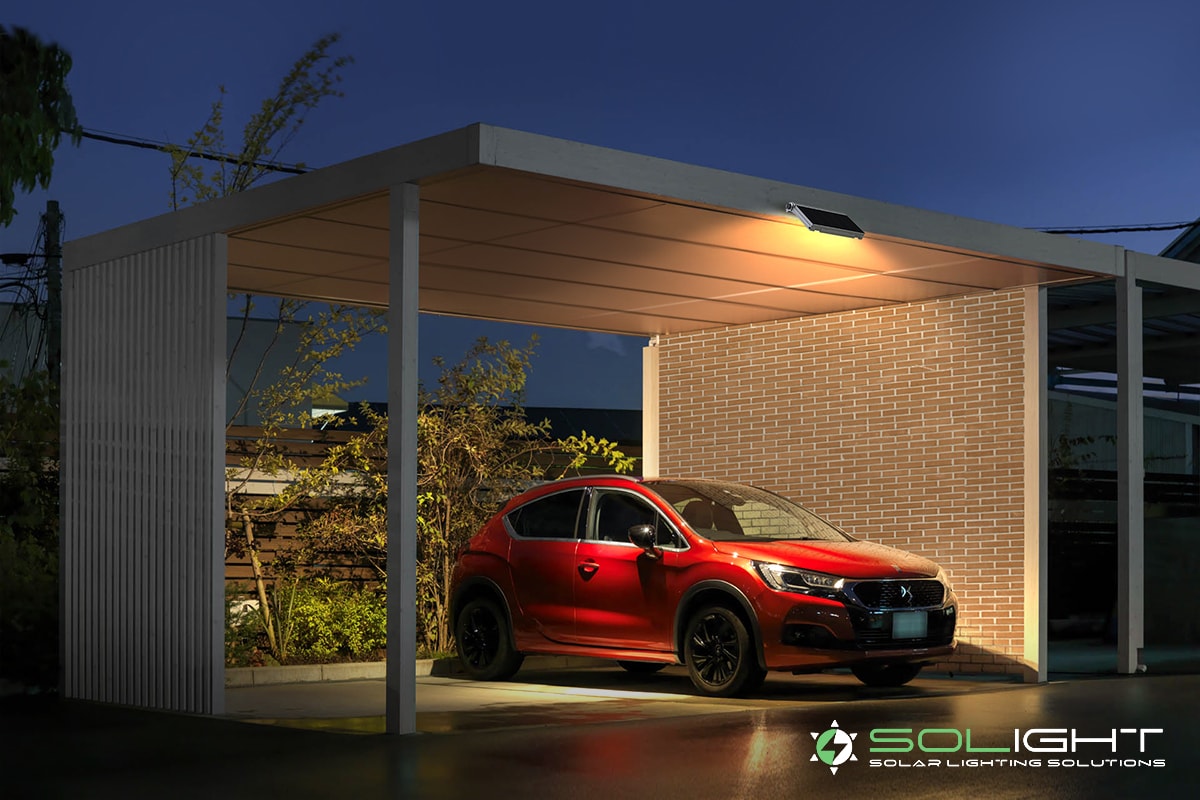Solar-powered lights have grown exponentially in popularity over recent years as we look for ways to replace unreliable mains power and reduce electricity costs, utilising free and plentiful solar energy to run outdoor and garden lights.
However, as solar light innovation continues to evolve, it can be tricky to understand the huge range of terminology and abbreviations that may indicate how your solar lights perform, how long they will last, and the value for money they provide.
Here we’ll explain two key terms used in solar lighting to clarify what they mean and why these features could be highly beneficial when choosing a set of excellent quality solar-powered outdoor lights!
Tech Terms Used in Outdoor Solar Lights
Let’s start with a quick summary:
- ALS stands for Adaptive Lighting System: This function means that your solar lights include sensors that automatically adjust the light produced during dark evenings without reducing the visibility within your garden.
- TCS stands for Temperature Control System: If you choose solar-powered garden lights with this feature, your lighting will be protected from the battery overheating, which can cause malfunctions or erode the battery’s lifespan.
ALS is a patented technology that maximises the efficiency of your solar lights, extending the duration of one charge. TCS is similarly patented, acting as a battery control, preventing heat damage and ensuring the battery lasts longer.
Next, we’ll define these functions in more detail to explain their practical purposes for solar lights in any outdoor space.
Benefits of ALS in Solar Lights
Adaptive lighting essentially makes solar garden lights dimmer when there is still sufficient sunlight to provide a reasonable level of illumination or during the night when the battery charge is beginning to run low.
This technology allows lights to use the optimal energy to match the environment. It can be integrated with a motion sensor to prompt a brighter output when movement is detected.
Running security lights continuously overnight isn’t efficient, not least because it will deplete the solar electricity within the battery faster and cause light pollution that can be detrimental to important species such as bees and other wildlife.
Using ALS ensures that garden lights maintain a perfect balance, reducing output to conserve energy or increasing lighting to full intensity when required.
Using TCS in Outdoor Solar Lights
Temperature fluctuations can be harmful to solar batteries. When you purchase a high-performance set of garden lights with TCS built in, you have the assurance that your solar lighting will work at good capacity even during the coldest winter days and in the height of summer.
TCS protects the battery from extreme heat. Although a solar battery can still operate in hotter conditions, this will begin to wear down the overall capacity of your lights and eventually mean the battery needs replacing.
In very hot weather, solar batteries can become irreparably damaged, so TCS works as a preventative technology to preserve the functionality and capacity of your solar garden lights and ensure they work perfectly for years to come.
Choosing the Right Solar Light Tech for Your Property
With an extensive range of designs, from decorative patio lights to practical security lights and ground-level lights secured with stakes, it is useful to consider how you’d like your garden lights to work alongside the tech built into each unit.
SoLight produces outstanding lights that suit residential, commercial and public spaces and can offer recommendations if you would like solar lighting solutions that match your aesthetic or safety requirements while providing long-term performance.
Some of our popular lighting models with these features, include:
- Wall Lights: the Mars 5 is a great example, with three lighting modes, in-built TCS to protect the Lithium-ion battery, and automatic day and night sensors to deactivate the light at dawn to allow for quick recharging.
- Landscape Lights: our Solar Area Light from the Exquisite Range is slimline, elegant and contemporary, with both ALS 2.4 core technology and TCS, ensuring the battery performs as well as the tough, durable alloy frame.
- Bollard Lights: the Solar Garden Light Smart Bollard looks fantastic around paths, edging and borders, with ALS 2.5 and TCS 3.0, providing up to ten days of lighting even during gloomier weather or overcast conditions.
While these models are a small snapshot of our broader catalogue, they comprise dynamic, automatic and energy preservation tech, which improve the reliability and durability of your garden lights and can even include other innovations such as auto sun tracking and Bluetooth app-based controls.
The Advantage of Cutting-Edge Solar Lights
Solar lighting isn’t a brand-new energy source. Still, it’s developing quickly as we become more aware of the carbon emissions and light pollution that conventional outdoor lighting can produce, alongside the running and maintenance costs of electricity-powered units.
However, the positive aspects of switching to solar lighting far exceed running costs, with many compelling benefits!
Improved Safety
Because solar garden lights work autonomously, without cabling or wires, they are significantly safer, particularly in public spaces and homes with children and pets.
While cables should be laid with insulative coverings to reduce risk, solar lighting eliminates the potential hazard of electrical shocks, especially in damp weather.
Reduced Maintenance
Advanced solar lights are designed to work for years or even decades without requiring extensive maintenance or parts replacements. Solar lighting units are virtually maintenance-free, without cables, plug sockets or elements that can be exposed to wear and tear.
Wiping away dust and grime can remove residue from the solar panels; otherwise, lights can continue to function without further intervention.
Low Environmental Impacts
Reducing electricity consumption alone is a positive outcome for the environment. Solar lights immediately lower your carbon footprint by converting energy from the sun rather than extracting power through the mains grid.
The dual advantage of solar light is that because solar LED bulbs last for at least ten years, they reduce wastage and the volume of bulbs and other components headed for landfill while simultaneously cutting down light pollution.
For more information about solar lighting tech, ALS or TCS, or to ask any questions you might have about our solar garden lights, please get in touch with the SoLight team, or visit our full product specifications via our online catalogue.





